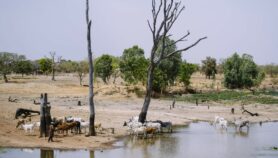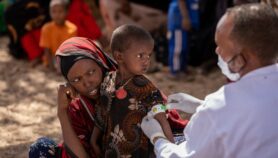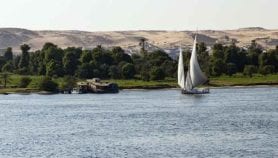By: Wagdy Sawahel
Send to a friend
The details you provide on this page will not be used to send unsolicited email, and will not be sold to a 3rd party. See privacy policy.
Sudan will cooperate on science and technology with Egypt and is increasing scientific ties with other Arab and African countries.
The countries signed the agreement at a meeting of the Joint Higher Sudan-Egypt Committee in Khartoum, Sudan (18-19 April).
Under the agreement, the countries will cooperate in the fields of agriculture, irrigation, environment and land reclamation, as well as industry infrastructure, energy, health, food sciences, higher education and information and communication technologies.
Egypt will provide assistance to the water sector in southern Sudan by developing local capacity and providing technical equipment, assessing water resources and constructing small-scale dams, and forecasting flooding and drought.
The two countries will also carry out evaluations of the Jonglei Canal project ― a long-term water conservation initiative designed to exploit the resources of the River Nile by diverting water into the Jonglei Canal for distribution.
The project ― started in 1980 but interrupted by the second Sudanese civil war ― is intended to boost economic and agricultural development in isolated areas of both Sudan and Egypt.
In addition to the existing Khartoum branch of Cairo University, Egypt will establish a branch of Alexandria University in the southern Sudanese city of Juba.
The Sudanese government will donate land in Khartoum to the proposed Arab Federation of Scientific Research. This was as announced by foreign minister Lam Akol at a meeting (27 March) to prepare for the Arab League summit held in Riyadh, Saudi Arabia last month (28-29 March).
The federation will coordinate and support science organisations to establish a knowledge-based economy in the Arab world, and promote science for development.
Sudan will also donate land to set up specialised scientific centres in areas such as biotechnology, nanotechnology, information technology and renewable energy.
Magdi Tawfik Abdelhamid, a researcher at Cairo’s National Research Centre, welcomed the news.
"These Sudanese science development-oriented efforts will cement the ties between the scientific community of the people of the Nile valley, as well as enhance science capacity building, technology and knowledge transfer, and human resources development at national, African and Arab levels," he told SciDev.Net.













